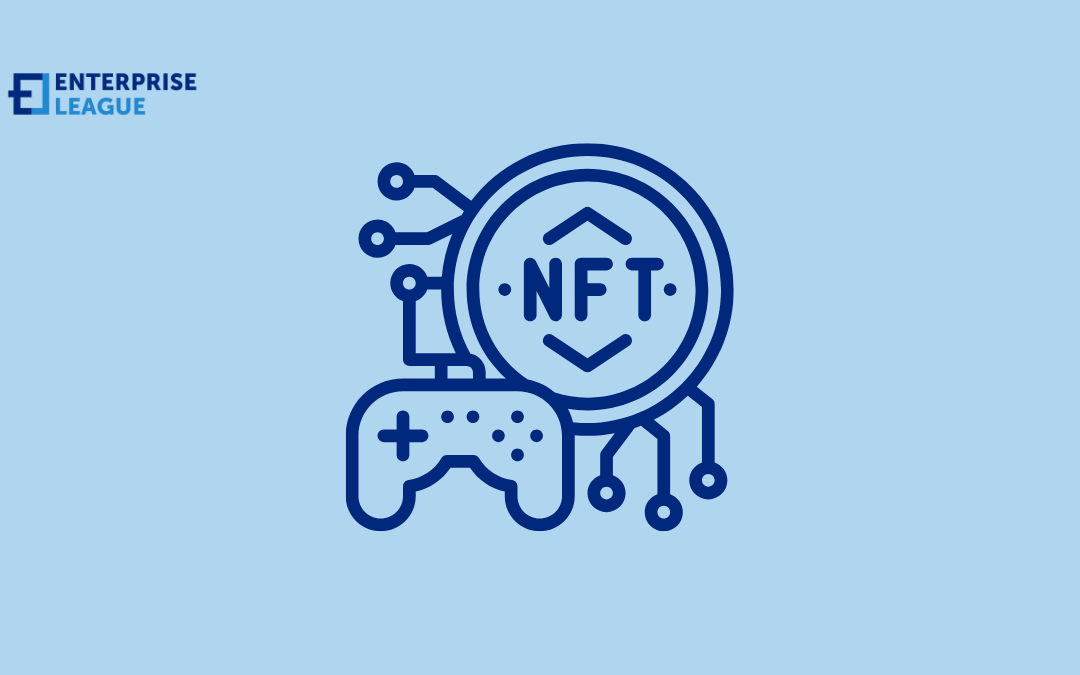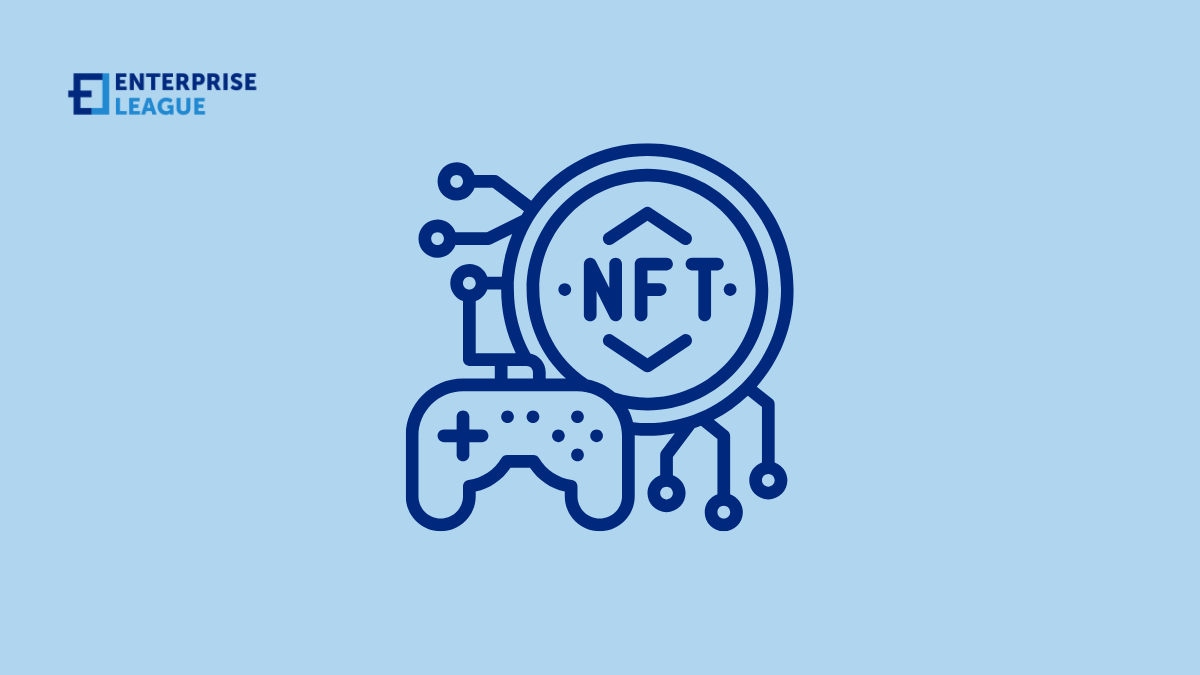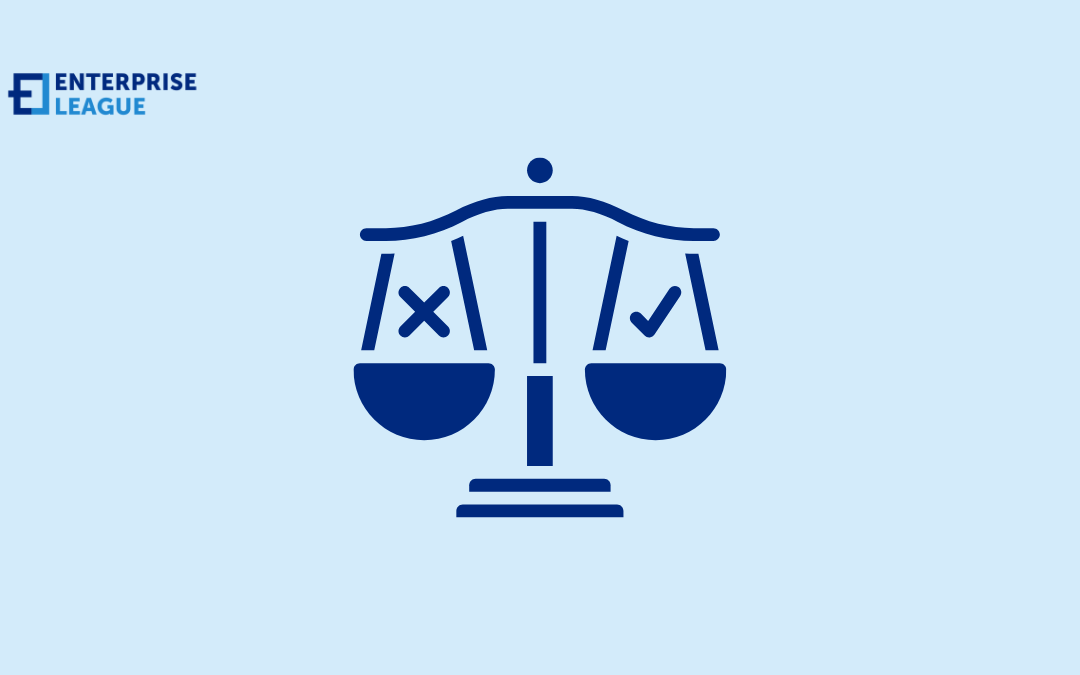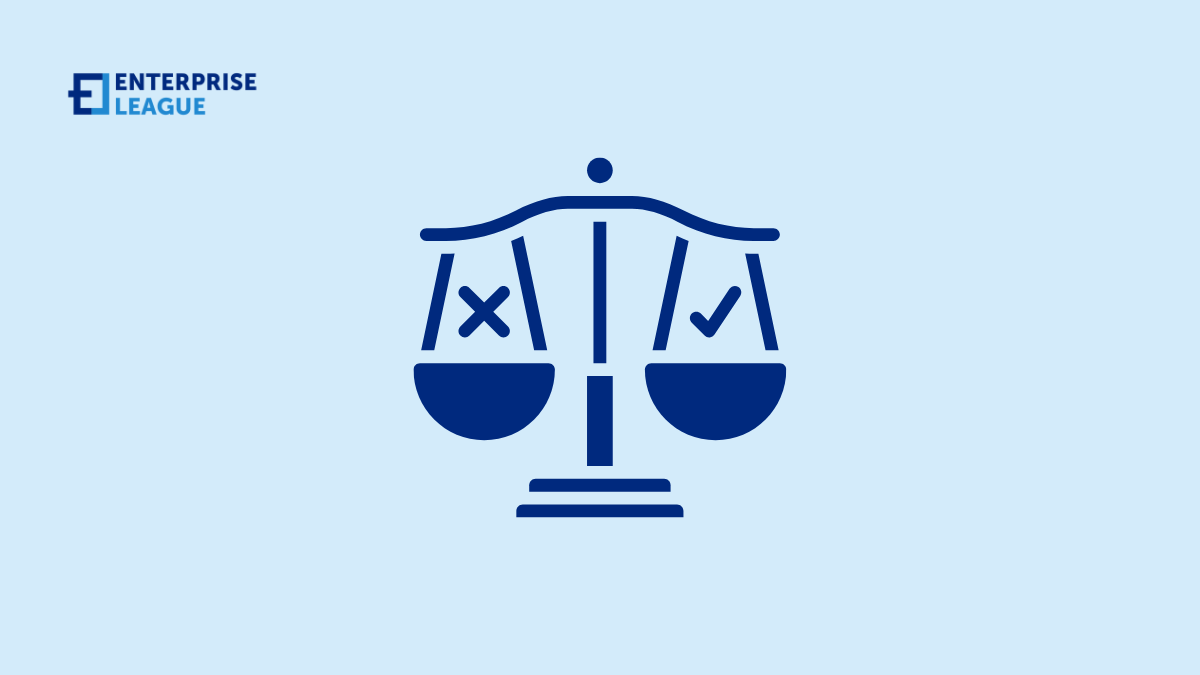Divorce can be especially complex for business owners, where personal decisions often intersect with assets, partnerships and long-term financial planning. Knowing who the top-rated divorce lawyers in Franklin, TN, are can make a meaningful difference in protecting...

13 software business ideas for people tired of trading time for money
Starting a software business today looks way different than it did even five years ago. The tools, market, and customer expectations have all changed drastically, opening doors for new players with fresh software business ideas that will bring something innovative to the table. Take a look at the market size of this industry. It is projected to reach US$896.17bn by the year 2029, which is no joke.
Whether it’s productivity tools, design platforms, communication apps, or developer-focused software, there are countless types of software that solo founders or small teams can build. Most people think you need a huge team of developers or millions in funding so you can break into the software world, but that’s not always true. Plenty of successful software companies began with just one or two people who spotted a problem nobody else was solving. One of those is GitHub. The founders bootstrapped the company and worked without salaries in the beginning. So yes, it’s not impossible, and you definitely don’t need a fancy degree to succeed.
Top 13 software business ideas
Here are some creative and profitable software business ideas that you can start right away:
Appointment booking system
Operating an appointment booking system offers a practical solution for businesses and service providers. This digital platform enables clients to schedule appointments without phone calls or emails. It automates the booking process, reducing scheduling conflicts and forgotten appointments. The system sends automatic reminders to clients, which helps decrease no-shows. Additionally, it collects valuable data about client preferences and busy periods.
This information allows businesses to optimize their schedules and staff allocation. The appointment booking system saves time for both service providers and clients, creating a smoother experience. Moreover, it operates 24/7, allowing bookings outside normal business hours. With the growing demand for convenience and digital solutions, this system meets modern expectations.
How much you can make: $50K–$300K/year
How much does it cost to start: $0–$500 (with no-code tools)
How long does it take to build: 1–3 months
Habit tracker app
A habit tracker app could be a worthwhile digital business venture. This type of app helps users build and maintain positive habits by recording daily activities and providing visual progress reports. The growing interest in personal development and wellness creates a steady demand for such tools. A habit tracker saves time by organizing multiple habit goals in one place while offering motivation through achievement badges and streaks.
The business model can generate revenue through premium subscription features, one-time purchases, or nonintrusive advertisements. Additionally, the app collects valuable behavioral data that informs product improvements. Low startup costs compared to physical businesses make this an accessible entry point for entrepreneurs. With increasing smartphone usage and focus on self-improvement, a habit tracker app meets genuine consumer needs.
How much you can make: $20K–$100K/year
How much does it cost to start: $0–$2K
How long does it take to build: 1–3 months
E-learning software
Operating an e-learning software business could be a promising venture in today’s digital world. This business creates and sells software platforms that enable online education and training for various audiences. The software allows for course creation, student management, and interactive learning experiences without geographic limitations.
E-learning software meets the growing demand for flexible, accessible education options that fit busy schedules. It also provides cost-effective training solutions for businesses seeking to develop employee skills without expensive in-person sessions. Revenue streams come from subscription fees, licensing, customization services, and maintenance contracts.
How much you can make: $50K–$500K/year
How much does it cost to start: $0–$5K
How long does it take to build: 3–6 months
Daily journal and mood tracker
Starting a daily journal and mood tracker business could be a valuable service for people seeking mental wellness. This business creates a platform where users can record their thoughts, feelings, and daily experiences while also tracking their emotional patterns over time. The software helps individuals identify triggers, recognize emotional trends, and gain insights into their mental health journey.
Daily journaling, coupled with mood tracking, offers users a practical tool for self-reflection, mindfulness, and personal growth. It meets the increasing demand for accessible mental health resources, especially as more people recognize the importance of emotional well-being in their lives. Revenue comes from subscription fees, premium features, and possibly partnerships with mental health professionals or organizations.
How much you can make: $10K–$100K/year
How much does it cost to start: $0–$2K
How long does it take to build: 1–3 months
Local services marketplace
Creating a local services marketplace could be a profitable business, connecting community needs with nearby solutions. This platform brings together local service providers, such as plumbers, tutors, gardeners, and house cleaners, with customers seeking their specific skills. It simplifies the process of finding reliable, local help for everyday tasks or specialized projects.
The marketplace benefits both sides, as service providers gain access to more clients without expensive marketing while customers find trusted help with transparent pricing and reviews. Revenue comes from commission fees on transactions, premium listings for providers, featured placement options, and subscription tiers for enhanced features. The business meets growing consumer preferences for convenience, trust, and supporting local economies.
How much you can make: $50K–$250K/year
How much does it cost to start: $0–$5K
How long does it take to build: 3–6 months
Scan and convert to pdf app
Creating a scan and converting to PDF turns smartphone cameras into portable scanners, allowing users to quickly capture documents, receipts, cards, and other paper items and convert them into high-quality PDF files. The app enhances the captured images with features like automatic edge detection, perspective correction, and image enhancement to create professional-looking documents.
It addresses common challenges people face when needing to digitize paperwork without access to traditional scanners. Revenue comes from a freemium model with basic features available for free, while premium subscriptions unlock advanced capabilities like OCR text recognition, batch scanning, or cloud storage integration.
How much you can make: $10K–$80K/year
How much does it cost to start: $0–$1K
How long does it take to build: 1–2 months
AI content idea generator
Creating an AI content idea generator could be a valuable business for content creators and marketers struggling with inspiration. This tool uses artificial intelligence to analyze trends, user interests, and existing content to suggest fresh, relevant topics for blogs, social media posts, videos, or articles. It helps solve the common problems of creative blocks and content fatigue that many creators face regularly.
The generator saves users significant time and mental energy by quickly producing customized content suggestions tailored to specific industries, audiences, or platforms. Revenue comes from subscription tiers offering different levels of idea generation capability, industry-specific packages, or API access for integration with existing content management systems. It addresses growing demand as more businesses and individuals need to produce regular content across multiple channels to maintain visibility.
How much you can make: $20K–$100K/year
How much does it cost to start: $0–$3K
How long does it take to build: 1–3 months
AI interview coach
Creating an AI interview coach could be a helpful business for job seekers looking to improve their performance. This software uses artificial intelligence to simulate realistic interview scenarios, analyze responses, and provide personalized feedback on communication style, answer content, and body language. It helps address interview anxiety and preparation challenges that many candidates experience during job searches.
The coach offers practice with industry-specific questions, customized feedback, and measurable improvement tracking that traditional preparation methods lack. Revenue comes from tiered subscription models, one-time coaching packages, or partnerships with universities and career centers. It meets growing demand as job markets become more competitive and remote interviews become more common. The platform can continuously learn from successful interview techniques and hiring trends to keep its coaching relevant and effective.
How much you can make: $30K–$150K/year
How much does it cost to start: $0–$5K
How long does it take to build: 2–4 months
Video editing software
This software provides tools for users to cut, arrange, enhance, and add effects to video footage, creating polished final products. It helps solve common challenges that content creators face when trying to produce professional-looking videos without extensive technical knowledge.
The software can offer varying complexity levels, from simple drag-and-drop interfaces for beginners to advanced features for professional editors. Revenue comes from subscription plans, one-time purchases, premium feature upgrades, or enterprise licensing models. It addresses growing demand as video content becomes increasingly important across social media, marketing, education, and entertainment sectors. The software can serve diverse users, from social media influencers and small businesses to professional filmmakers and large corporations.
How much you can make: $50K–$300K/year
How much does it cost to start: $0–$10K
How long does it take to build: 4–6 months
Employee onboarding platform
Creating an employee onboarding platform could be an effective business solution for companies struggling with new hire integration. This software streamlines the orientation process by digitizing paperwork, automating task assignments, and providing structured learning paths for new employees. It helps solve common problems like inconsistent onboarding experiences, missing documentation, and the significant time burden on HR teams. The platform reduces onboarding time while improving new-hire satisfaction, which leads to better employee retention and faster productivity.
Revenue comes from subscription fees based on company size, implementation services, and custom integration options with existing HR systems. It addresses growing needs as workforces become more remote, distributed, and specialized, requiring more structured onboarding approaches. The software centralizes all orientation materials, training videos, company policies, and required forms in one accessible location for both employees and managers.
How much you can make: $100K–$500K/year
How much does it cost to start: $0–$10K
How long does it take to build: 4–6 months
Team collaboration app
The team collaboration app brings together various communication tools, file-sharing capabilities, and project-tracking features into one unified platform. It helps solve common workplace challenges like scattered information, disjointed conversations, and difficulty coordinating across different departments or locations. The app improves productivity by centralizing work discussions, documents, and deadlines in a single, searchable space that everyone can access.
It addresses growing needs as more companies adopt flexible work arrangements where team members may work remotely or on different schedules. The platform reduces email overload and meeting fatigue by providing more efficient ways to share updates and make decisions.
How much you can make: $100K–$500K/year
How much does it cost to start: $0–$15K
How long does it take to build: 6–12 months
Cold email outreach platform
Creating a team collaboration app could be a worthwhile business venture in today’s connected workplace environment. This software brings together various communication tools, file-sharing capabilities, and project-tracking features into one unified platform. It helps solve common workplace challenges like scattered information, disjointed conversations, and difficulty coordinating across different departments or locations.
The app improves productivity by centralizing work discussions, documents, and deadlines in a single, searchable space that everyone can access. The platform reduces email overload and meeting fatigue by providing more efficient ways to share updates and make decisions. It also creates a searchable knowledge base of company information and project history that helps new team members get up to speed quickly.
How much you can make: $50K–$300K/year
How much does it cost to start: $0–$5K
How long does it take to build: 3–6 months
AI-enabled restaurant reservation app
Creating an AI-enabled restaurant reservation app could be a valuable business connecting diners with dining establishments. This platform uses artificial intelligence to optimize bookings, predict busy periods, and suggest personalized restaurant recommendations based on user preferences and dining history. It helps solve common frustrations like difficulty finding available tables, long wait times, and discovering new restaurants that match specific tastes.
The app provides restaurants with smart table management, reducing no-shows through automated reminders and waitlist features that fill sudden cancellations. Revenue comes from subscription fees from restaurant partners, premium consumer features, and data insights packages for the hospitality industry.
How much you can make: $50K–$250K/year
How much does it cost to start: $0–$10K
How long does it take to build: 4–6 months
Conclusion
Don’t get caught up comparing yourself to tech giants or overthinking the perfect moment to start. The best software businesses often begin with someone who cares enough to fix something that bugs them, and if you’ve been sitting on a few software business ideas, now is the time to explore them. Take that first step, build your minimum viable product, and put it in front of real users. Remember, every successful founder started somewhere, usually with limited resources and plenty of uncertainty.
More must-read stories from Enterprise League:
- Trending data analytics business ideas you can start right away.
- Creative and profitable manufacturing business ideas.
- Zero-waste business ideas to keep an eye on.
- Innovative and profitable farmer business ideas to consider starting.
- Trending marketing automation business ideas to keep an eye on.
Related Articles
What Are the Top 5 Divorce Lawyers? Here Are Your Options in Franklin, TN
Exploring the 7 Best Classic Car Dealerships in Illinois
Illinois has a rich automotive heritage, as it's been a transportation and manufacturing hub for decades. The passion is evident in the numerous classic car dealerships across the state. For auto enthusiasts, purchasing an authentic, classic car means owning tangible...
Need an Alternative to CSC ServiceWorks for Apartment Laundry? These Are the 5 Best Options
If you're managing or owning a multifamily property, your laundry provider plays a much bigger role than it might seem at first glance. For those searching for the best alternatives to CSC ServiceWorks for apartment laundry, there are several reliable providers...
How Thoughtful Home Design Supports Better Work and Living
The lines between home and office have blurred. More professionals than ever are working from their dining tables, spare bedrooms, and kitchen counters. As remote and hybrid work become standard practice, the way we design our homes has taken on new importance. A...
Navigating Personal Injury Claims in Manhattan: Essential Guidance for Victims
In the bustling streets of Manhattan, where millions walk crowded sidewalks, heavy traffic, and towering construction sites daily, accidents resulting from negligence occur with unfortunate frequency. Personal injury law provides a framework for victims to seek...
















